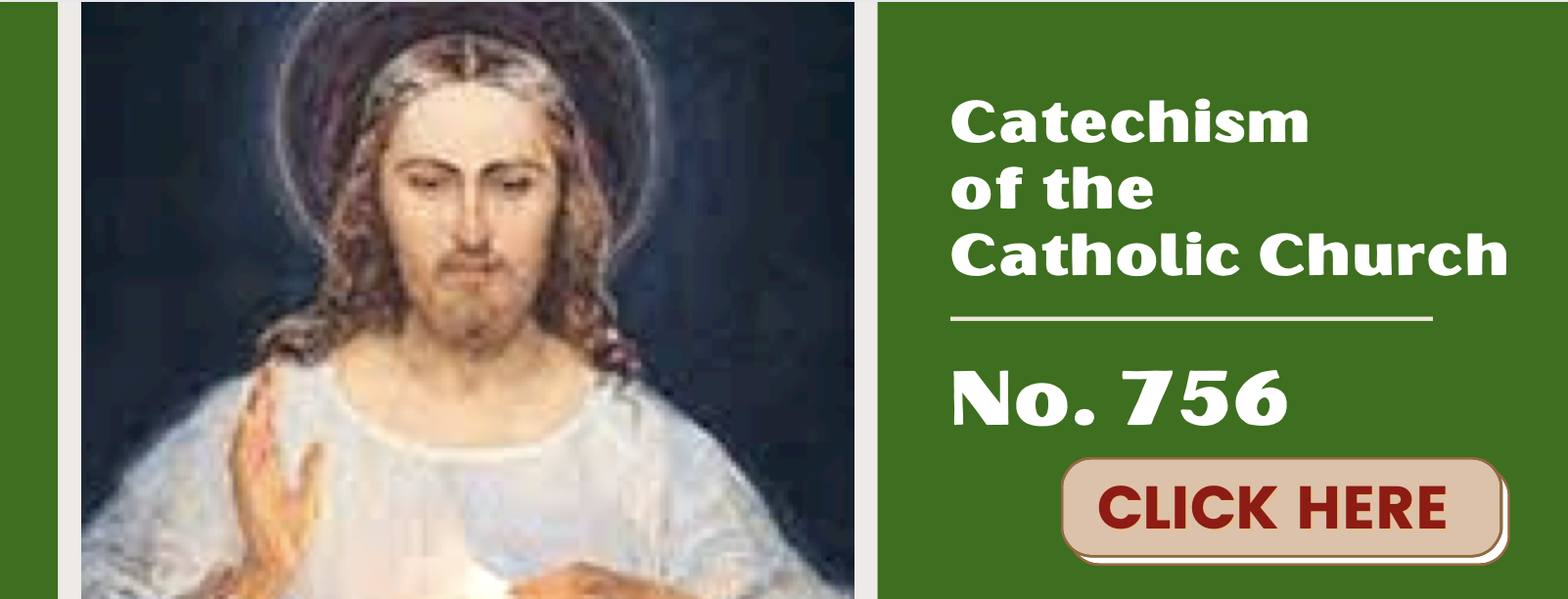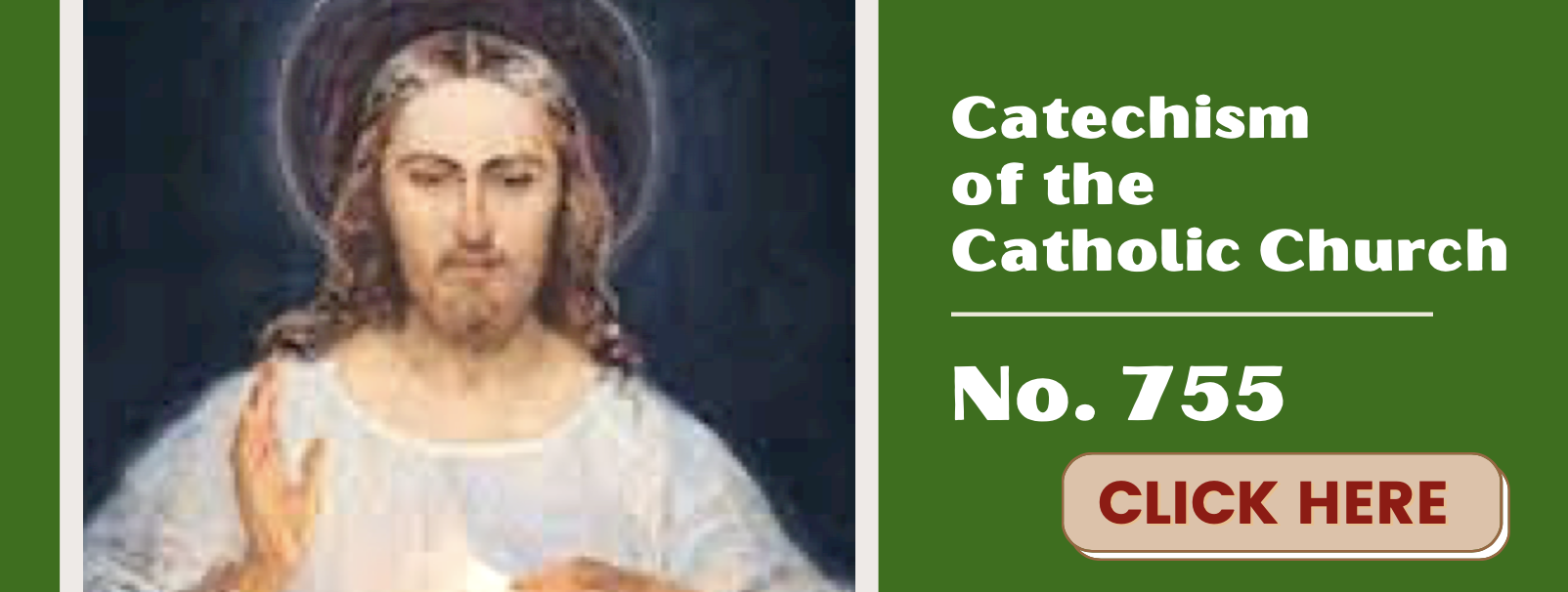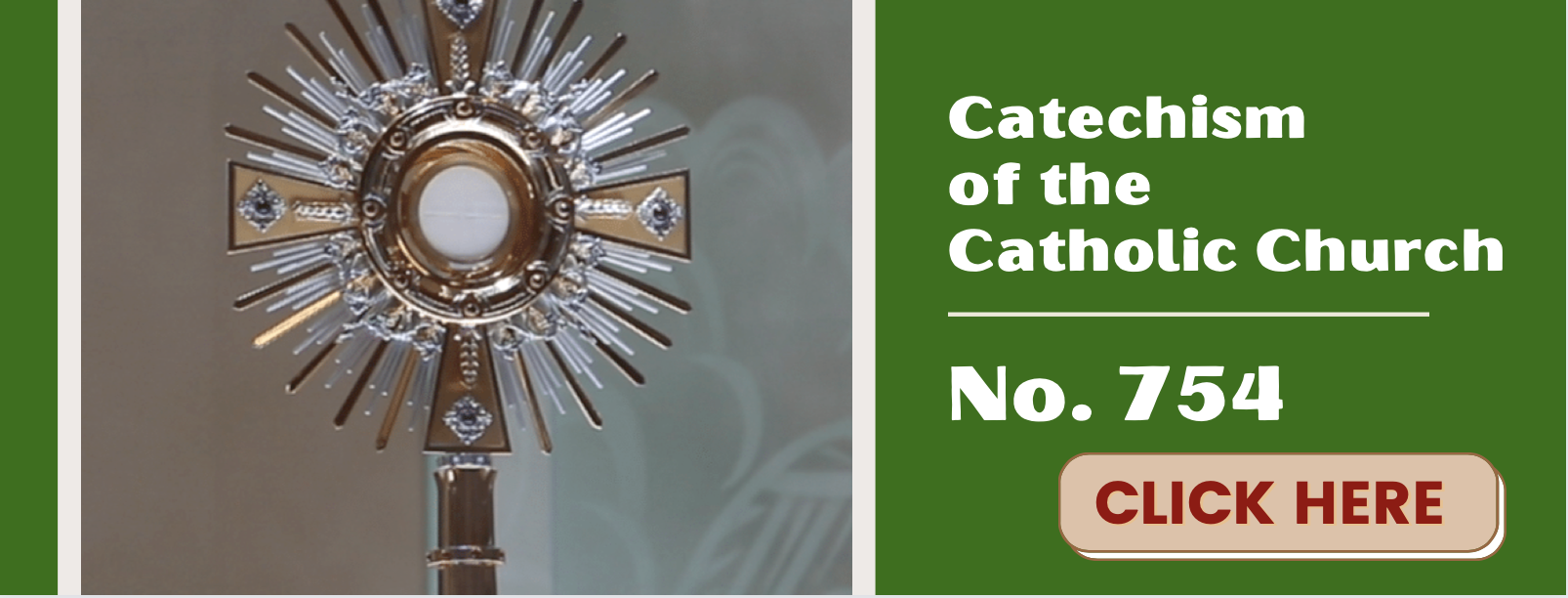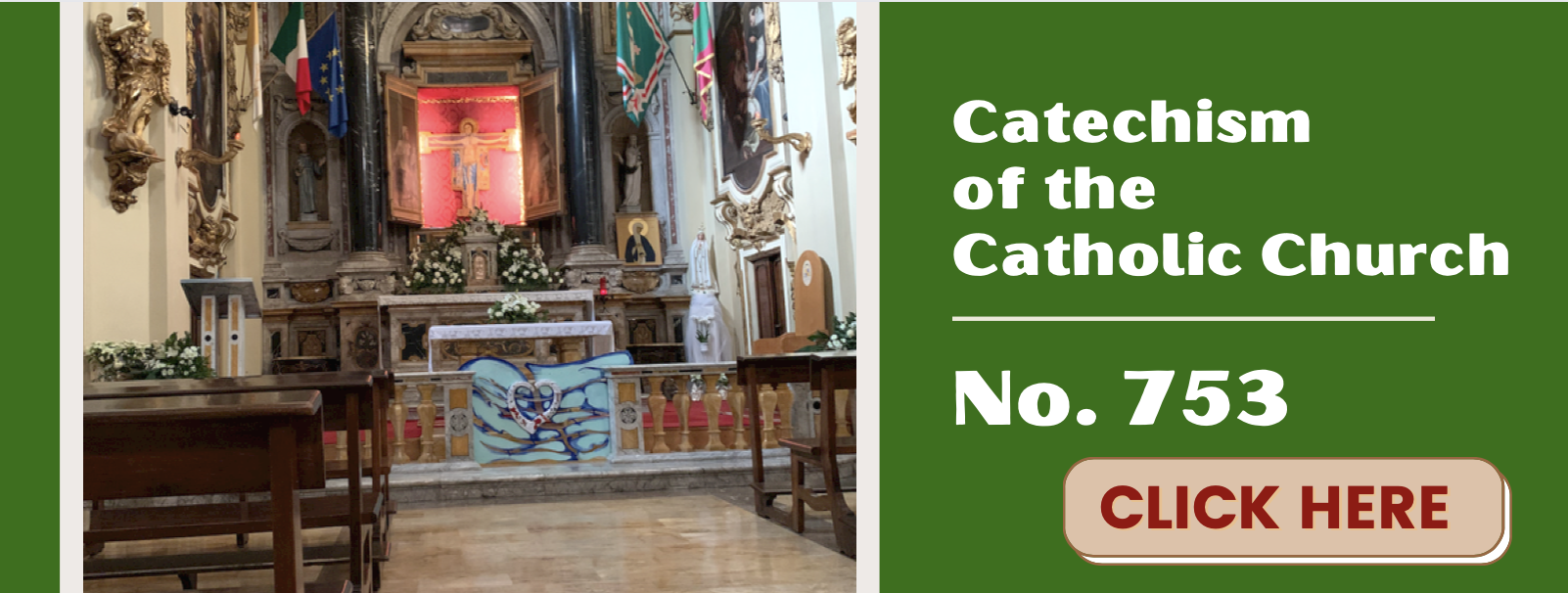Solemnity of Saints Peter and Paul, Apostles
Mass during the Day

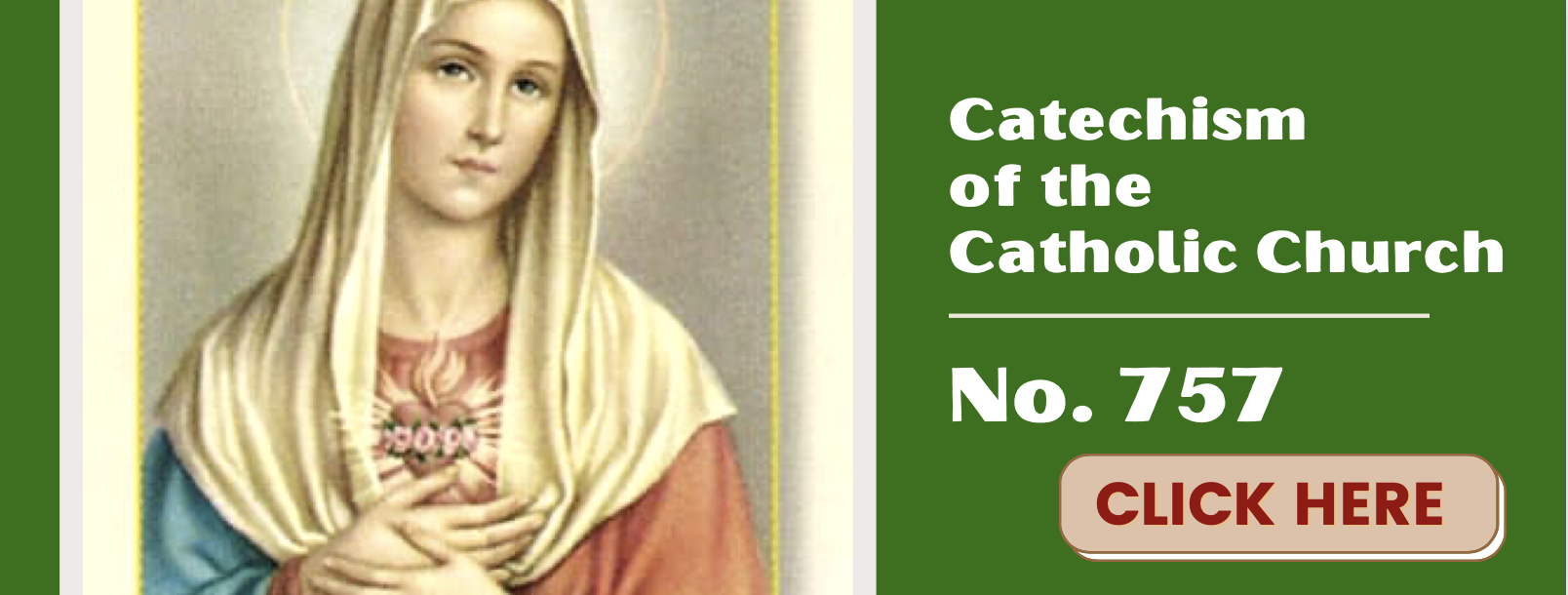

“For greater things you were born.” (Ven. Mother Luisita)
WEDNESDAY, June 29th Mt. 16: 13-19 SOLEMNITY OF SAINTS PETER AND PAUL
“Jesus said to him, ‘Blessed are you, Simon son of Jonah. For flesh and blood has not revealed this to you, but my heavenly Father. So I say to you, you are Peter, and upon this rock, I will build my Church, and the gates of the netherworld shall not prevail against it.’”
On this beautiful Solemnity of Saints Peter and Paul, let us check our religious Vocabulary! We should all have at least some knowledge of the basics! Fr. Ed is our instructor!
HOW IS YOUR RELIGIOUS VOCABULARY??? By Fr. Ed Broom, OMV
One of the hallmarks of the greatness of Saint Thomas Aquinas, the Angelic Doctor and quite possibly the greatest Theologian in the Catholic Church, is his great clarity and precision in defining theological, spiritual, and Biblical concepts. Aquinas makes sure that one understands the concept before going into detail in explaining it.
SPECIFIC VOCABULARY FOR SPECIFIC DISCIPLINES. Every area of discipline, be it academic, music, sports, art, culinary, natural sciences, whatever, has its specific vocabulary. Having played Baseball, I know from experience that there truly is Baseball-lingo, or vocabulary specific to Baseball. These words: Balk, Bunt, suicide-squeeze, Pop-fly, Extra-innings, Reliever, double-play, triple-play, Foul-pole. Anyone cognizant of the sport of Baseball understands the use of these words. However, for those never exposed to Baseball, these words seem like a foreign language, to say the least.
THEOLOGICAL DISCIPLINE AND LANGUAGE. This concept of vocabulary can be applied to Theology and the branches of Theology. Therefore, we would like to offer you a short explanation of these words, mostly related to theology, and a brief motivation so as to grow in your spiritual journey to heaven. Off we go!
1. THEOLOGY. Put simply, this word means “The Study of God.” Of all the human pursuits in the realm of study, Academia, acquiring knowledge, Saint Thomas states that “Theology is the Queen of all the studies.” May we have a hunger and thirst for God as the ultimate source and meaning for our existence.
2. PHILOSOPHY. The Scholastics, the theologians who lived at the time of Saint Thomas Aquinas (13th Century), stated that “Philosophy is the handmaid of theology.” The two complement each other, like hand in glove. The word Philosophy actually means, “The study of Wisdom”. May Our Lady, Seat of Wisdom, help us to pursue true wisdom—always related to God and our eternal salvation.
3. BIBLICAL THEOLOGY. The ultimate source of truth is the Bible. From Greek, Bible actually means Books—the Bible is a library of books that teach us about God. And a good definition of the Bible is the following: “The Bible is the Word of God.” Encouraged by the Psalms, “Your word is a lamp for my feet, a light on my path.” (Ps. 119:105), may the Bible be a light for our path that leads us to heaven.
4. GOSPEL. There are four Gospels: Matthew, Mark, Luke and John. The Word actually means Good News. When we stand to hear the Gospel every Sunday, we are standing to hear the Good News, and this should fill our hearts with joy.
5. PATRISTICS. This important branch of Theology teaches about “The Fathers of the Church”. There are the Western (Latin) Fathers of the Church, and the Eastern Fathers of the Church. The most renowned of the Western Fathers would be St. Ambrose, St. Augustine, St. Jerome, and St. Gregory the Great. Whereas, the most renowned of the Eastern are the following: St. Athanasius, St. John Chrysostom, St. Peter Chrysologus, St. Basil the Great, St. Gregory of Nicea and St. Gregory of Nacianzen. May these Fathers—both West and East—help us to arrive at a correct interpretation of the Bible, the Living Word of God!
6. ESCHATOLOGY. This branch of Theology teaches the importance of meditating upon the Last-Things: Death, Judgment, Heaven, and Hell, as well as Purgatory, not to exclude the concept of eternity. Lord, teach us wisdom, to count our days, as the Psalm so eloquently reminds us.
7. CATHOLIC. In our panoramic vision of theology, we must know the meaning of the Greek word—Catholic, which means: “Universal”. The Catholic Church is a family that is open to all, nobody is excluded. The door is open, but you must cross the threshold.
8. CHRISTOLOGY. This is the all-important study of Christ—meaning, “The anointed one”. Jesus is the Christ, the Son of the Living God. Reading the Gospels, we get to know the excelling riches of Our Lord and Savior Jesus Christ.
9. SOTERIOLOGY. A word not known by most Catholics, still such a word is of great importance. It means, “The Theology of Salvation”. Lord Jesus, save me!!!
10. PNEUMATOLOGY. This is a word that you probably did not use at the breakfast table this morning, but it means the study of “The Spirit, the Holy Spirit.” How important is the Holy Spirit in order for us to get to know Jesus, as in the case of the Apostles after a nine day Novena ending with Pentecost—fifty days after Easter!
11. THEOLOGY OF THE TRINITY. The most profound Mystery of the Catholic Faith is that of the Blessed Trinity—meaning, Three Persons in One God. Glory be to the Father, to the Son, and to the Holy Spirit!
12. MORAL THEOLOGY. Of great importance and meaning: the study of human acts. A moral person is an upright person; an immoral person, on the contrary, has chosen sin as his life-compass and direction.
13. THEOLOGICAL VIRTUES. The term means Virtues related to God, and there are three: Faith, Hope and Charity.
14. VIRTUE/VICE. A good habit is a virtue; a bad habit is called a vice. We are called to become saints, meaning virtuous and holy followers of Christ.
15. CARDINAL VIRTUES/ MORAL VIRTUES. The word Cardinal (not simply a bird or a Baseball-player) means “Hinge-virtue”—like the hinge on a door, from which other virtues flow. There are four: Justice, Temperance, Prudence, and Fortitude.
16. SACRAMENT. From the Latin: Sacrare— to set apart as sacred, to consecrate! The classic catechetical definition of Sacrament: a sensible sign instituted by Jesus Christ, by which invisible grace and inward sanctification are communicated to the soul.”
17. ECCLESIOLOGY. A very important branch of theology meaning the Study of the Church—The Mystical Body of Christ. The Church is a community of believers united by the bond of love and grace.
18. ECUMENISM. This in a modern movement directed at fostering Christian Unity, in which one of the most important aspects would be inter-religious dialogue, striving to seek points in common and build upon these aspects of unity.
19. DOGMATIC THEOLOGY. This is the wide, expansive, all-encompassing theology of the Study of God and the articles of faith, most especially those incorporated in the Creed/ Profession of Faith recited at Mass every Sunday after the Homily.
20. CANON LAW. This would be the true and authentic compilation of the Laws of the Church. The most recent was promulgated during the Pontificate of Pope Saint John Paul II in 1983.
21. CHRISTIAN ANTHROPOLOGY. This branch of Theology studies the nature of man, the nature of the human person created in the image and likeness of God, flawed due to Original Sin, but redeemed and sanctified through the Passion, death and Resurrection of Jesus and the grace applied through the Sacraments—true channels of grace.
22. CHURCH HISTORY. This would be the systematic and ordered study of the History of the Church from its foundation on Peter, the Rock until the present day. Important is the saying: “He who does not know history is condemned to repeat the same errors.”
23. CHRISTIAN-CHURCH-ARCHITECTURE. This would be the study of the construction of the Churches throughout history and their value in the formation of the People of God. Indeed, a beautifully constructed Church can elevate the mind, the heart, and the soul to God!
24. THE THEOLOGY OF RELIGIOUS LIFE. Of those called to the total service of Christ, some are called to the Priesthood and some are called to Religious-life. Others are called to both: Religious Life and the Priesthood (as in the case of the author of this article). Religious life is designed for the individual who wants to follow Jesus radically by pursuing holiness of life and by the embracing of the vows of Chastity, Poverty, and Obedience.
25. PASTORAL THEOLOGY. The word Pastor refers to Shepherding the flock. It is a theology motivated by apostolic zeal and an ardent desire to walk and work with Jesus, the Good Shepherd, to save souls for the Kingdom of God. Saint John Bosco’s motto was: “Give me souls and take all the rest away.”
26. CHRISTIAN PSYCHOLOGY. This is the branch of Theology that studies the different temperaments, dispositions, and emotions of the individual related to God. As a result of Original Sin, human emotions must be both ordered and purified by the grace of God.
27. THEOLOGICAL AESTHETICS. This wonderful theological branch or discipline is the study of beauty related to God. Three of the principle attributes of God are His Goodness, Truth, and Beauty. Where there is one of the three, God’s veiled but Real Presence is manifest!
28. HERMENUTICS. This is the study of the manner of construction of theological formulations, indispensable to the proper interpretation of the Bible.
29. NATURAL THEOLOGY. An all-important branch of theology in which by the study of Nature, one of God’s most eloquent books, one can arrive at the knowledge of the Creator. In a word, the beauty of creation points to the Creator Himself—God who is the essence of Beauty! Saint Thomas Aquinas offers us the five famous proofs from nature that point to the existence of God.
30. APOLOGETICS. This is a branch of theology concerned and dedicated to defending the Articles of Faith.
31. HOMILETICS. This is the theology that deals with the art of Preaching—explaining and helping the faithful to understand the Word of God, and how to put it into practice in their daily lives.
32. MISSIOLOGY. This would be the theology of missions. Jesus’ last words were: “Go out to all nations and teach them all I taught you and baptize them in the Name of the Father, and of the Son and of the Holy Spirit and I will be with you always even until the end of time.” (Mt. 28)
33. HAGIORAPHY. This is a fascinating study of the history and lives of the saints, God’s friends, and our companions on our journey to Heaven. Let us get to know them, talk to them, imitate and love them, with the hope of being with them one day in Heaven.
34. JOSEPHOLGY. A study of the greatest of all the saints—the Great and Glorious Saint Joseph.
35. MARIOLOGY. Finally, we have arrived at an all-important branch of Theology, that of Mariology which means of course the study of Mary, her dogmas and devotions, and her important role in the History of salvation.
In conclusion, we hope and pray that this min-course in Theological vocabulary will motivate you to get know God more intimately, love God more ardently, and imitate the lives of the saints fervently, so that one day you will be with God in Heaven, in the company of the Blessed Virgin Mary, for all eternity. Amen!

